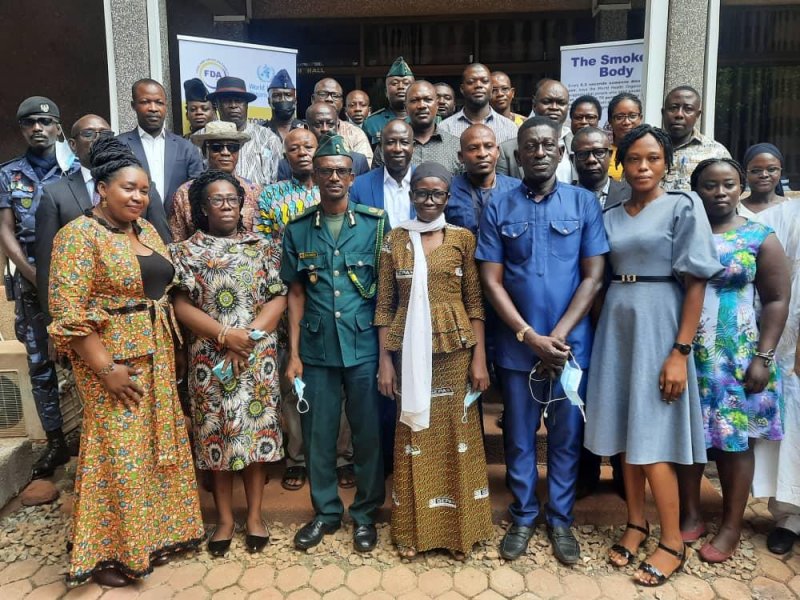A Taskforce comprising relevant security services and state agencies has been constituted in the Northern, North East, and Savannah Regions to work to ensure compliance with the country’s tobacco control laws.
The Taskforce will also work to ensure that there is “no smoke sign” in public places, an absolute ban on tobacco advertising, give the Food and Drugs Authority (FDA) intelligence to get rid of illicit tobacco products amongst others.
Membership of the Taskforce are law enforcement officers from all law enforcement agencies in tobacco control, including National Security, National Investigations Bureau, Ghana Police Service, Customs Division of the Ghana Revenue Authority, Ghana Health Service, Ghana Education Service, and religious and traditional leaders from the three regions.
This was the outcome of a day’s training on Tobacco Control Regulations organised in Tamale by the FDA with support from the World Health Organisation (WHO).
They were taken through WHO – Framework Convention on Tobacco Control (FCTC) and Countries Obligations, Legislative Provisions for Tobacco Control and Enforcement Challenges in Ghana, and the Role of the Individual Agencies in Advancing Tobacco Control in Ghana.
An enforcement plan was also developed where all the relevant agencies had a role in tobacco control in the regions, and for that matter, the country.
The country has ratified the WHO – FCTC, which enjoined her to amongst others reduce the demand for and supply of tobacco in the country.
Although tobacco use has been on the decline since the ban on public smoking in the country, some challenges have been encountered in the enforcement of the law, and a large number of people still use tobacco, hence, the training to help in tobacco control.
Dr Olivia Boateng, Head, Tobacco and Substances of Abuse Department of the FDA, who spoke about the next steps after the training, said they would work like a taskforce, “It will not just be FDA, that will go on monitoring for compliance of tobacco provision, all intelligence officers will give the FDA intelligence to get rid of illicit tobacco products.”
Dr Boateng added that, “We will work hand-in-hand with Metropolitan, Municipal and District Assemblies.
The collaboration will be strengthened, there will be occasional meetings to give updates of what they are doing. So, this is like a local solution for them.”
Dr Joana Ansong, WHO Focal Point on Tobacco, Ghana, called on the security agencies to work to stop smoking, especially amongst the youth because it was not good for the future of the country.
Dr Ansong assured the taskforce that WHO would continue to support the FDA to undertake more trainings to ensure that the security agencies would be better placed to enforce the laws to check the smuggling of illicit tobacco products and public smoking.
Whilst pledging their support to enforce the law on tobacco control, participants expressed the need for the government to totally ban tobacco in the country to protect the population, indicating that tobacco was highly harmful to the health of people.

